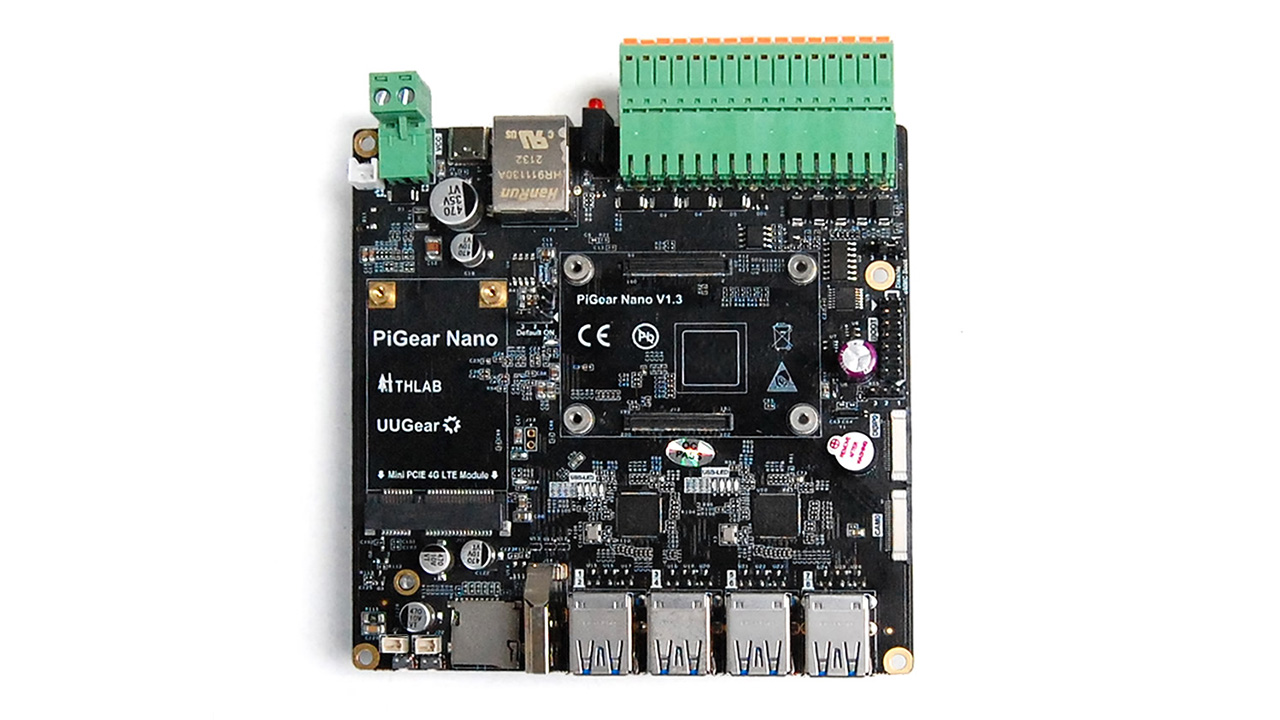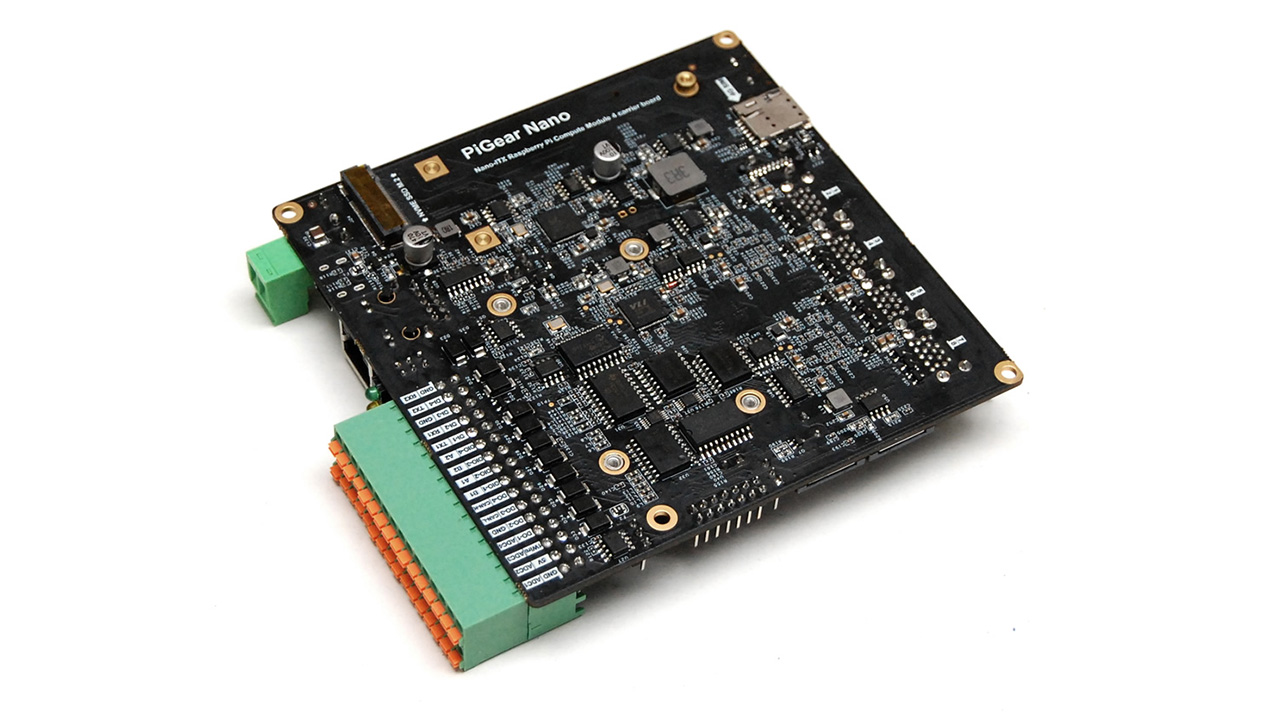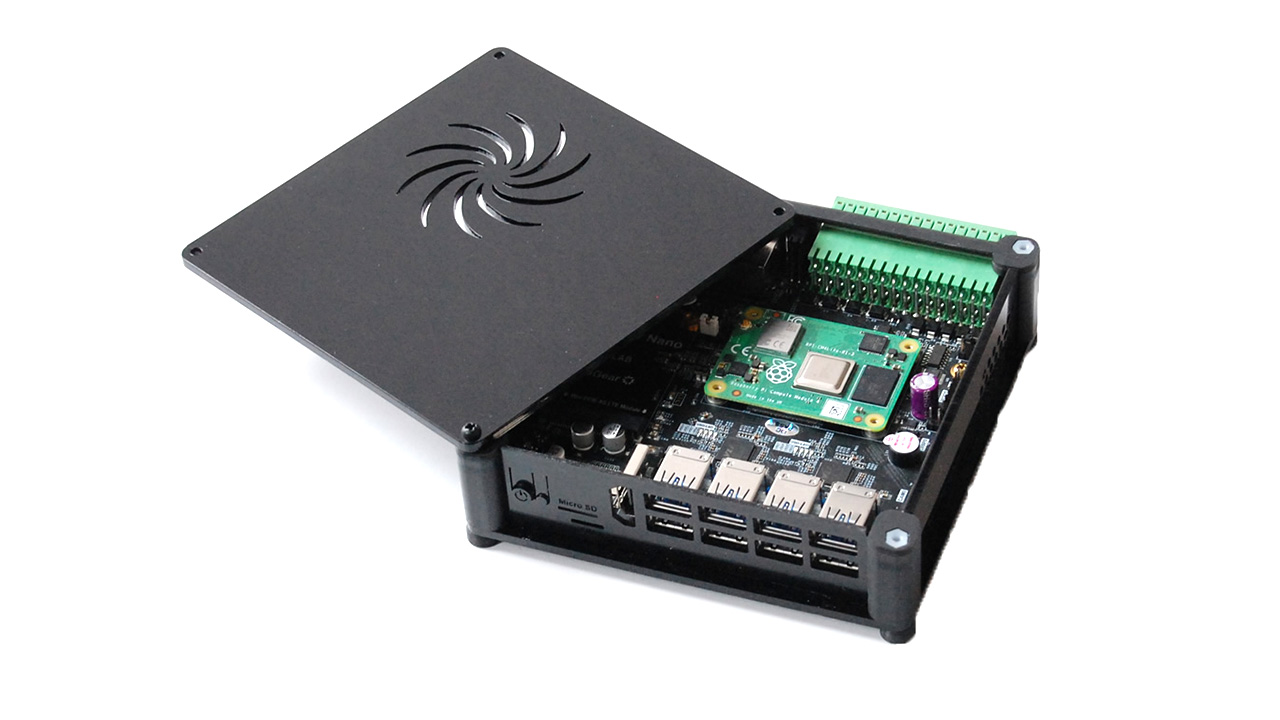PiGear Nano Compute Module 4 Carrier Board Is the New USB King
Are eight ports enough for you?
PiGear’s Nano, a $200 Mini ITX-sized Raspberry Pi Compute Module 4 carrier board, is now available from the Uugear store. It comes with all the usual Raspberry Pi accouterments but ups the number of USB 3 ports to a massive eight.



Available on its own, with a Compute Module, and even with a natty black case, the PiGear Nano is perfect for anyone who hopes to use a Raspberry Pi as a 'proper' computer, but doesn't like the Pi 400. You get plenty of connectivity with the Compute Module's Wi-Fi (when available, due to shortages only boards with 2GB of RAM and no Wi-Fi were in stock at the time of writing) complemented by gigabit Ethernet, a mini PCIe slot for an LTE module, and a SIM card slot. There's an NVME interface for an SSD, and getting the right Compute Module also nets you a micro SD slot. The HDMI count is reduced to one, but you still get the MIPI interfaces for both display and camera.
And, of course, all those glorious USB 3.0 ports are perfect for peripherals and extra storage. Each port connects to an LED, so you can tell if the device is active. Power is supplied by an additional two-port DC input, as the USB-C port doesn't provide enough juice to initialize the SSD. The usual Pi GPIO is accessible via a green block that protrudes outside the case, and there's a programmable red, amber and green traffic light-like LED indicator on the back.
Starting at $201.45 for the bare carrier board without a case, the PiGear Nano is in stock in limited quantities. Software installation instructions are available at the Ugear site. In addition, Pi enthusiast and friend of the Tom's Hardware Picast, Jeff Geerling, added it to his Github list of Raspberry Pi PCIe devices, digging into the board's specifics.
Get Tom's Hardware's best news and in-depth reviews, straight to your inbox.

Ian Evenden is a UK-based news writer for Tom’s Hardware US. He’ll write about anything, but stories about Raspberry Pi and DIY robots seem to find their way to him.